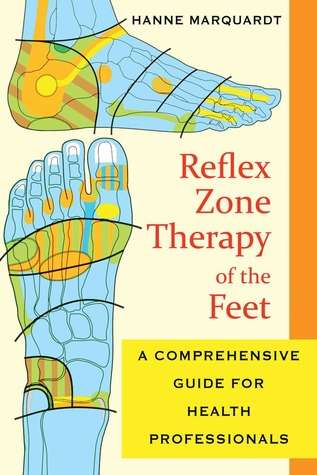You might believe that thinking about your problems a lot may help you solve them, but here’s the thing: in the long run, rumination can make you pretty miserable.
In every quiet moment you find yourself drawn to dwelling on your mistakes, your failings, the disappointments, and the let-downs. And the more time you spend in those ruts, the deeper they get, and then pretty soon it feels like your whole world is dark. And not only do you feel depressed, discouraged, or hopeless, those dark thoughts start to feel like the truth.
Dwelling on depressive things becomes your new comfort zone, and being out of them feels awkward and weird, and hope and light just feel like some figments of some distant imagination.
But even though rumination makes you depressed and unmotivated, you keep doing it for some reason. Be honest with yourself; it rewards you. Maybe when you do it you feel like you’re righteously punishing yourself. Or maybe you feel like if you just think about the bad stuff more you could prevent it. Maybe it’s an attempt to regain control over something that you have no control over, which is the past.
Be honest with yourself for a minute. Do you feel a sense of pleasure in doing it for a moment? Do you get some validation wallowing in how bad you are or how bad someone else is? Doesn’t it feel just a little bit good to remind yourself that you’re a complete failure and there’s nothing you can do about it?
I get that this doesn’t work and it doesn’t feel good, but you have to admit it’s a little bit rewarding sometimes.
Now, once when I was in grad school, I’d been on a handful of dates with this guy, let’s call him Alexander, and then things didn’t go anywhere after that. And about six months later I’m visiting my parents on Christmas Day, and guess who knocks on the door? Alex.
Now, I had no idea he was coming, and I was pretty surprised to see him. My parents were wondering if there was something going on that they didn’t know about. It was kind of weird.
But we found a quiet place to catch up on life. And we talked for a bit, and he said, “You know, I really wish we had tried to see if this relationship would work.” He said, “I really regret that we didn’t keep dating.”
Now, just to clarify, I didn’t break up with him or anything. Like, we just were never exclusive. We just never took it any further. So I basically replied, “There’s no reason we can’t try dating again. We’re both single. I’m willing. Let’s give it a shot.” And then he got super awkward and said something about needing to go fix his car, and basically that was the end of it.
Now, for all I know he had a dozen reasons why he didn’t want to date me. Like, that’s cool, right? But if we take it at face value, what he said is the essence of depressive rumination. It’s this whole idea of thinking a lot about your regrets and then never doing anything about them when you do have the chance.
I don’t blame him; he was probably just still gaining those relationship skills like we all have to do in our life. But this concept of like, “I’m gonna think about and talk about all the things I regret but not do anything about them” prevented him from being able to connect on a deeper level or or form a more meaningful relationship. And I think this is the type of thinking that’s disordered.
And I get it. When you’re depressed, it’s super hard to get motivated. It’s super hard to get yourself to take action and to make change happen. It’s hard to have hope that things would ever work out. I get that.
But we at least have to get honest about the futility of thinking this way. We have to be honest that this type of thinking is self-deception. It’s distorted. Your thoughts are lying to you. They feel super real, but they’re lies. So these regrets and this distress, this feeling of “Oh, nothing is ever going to work,” it’s just not true.
And what we pay attention to, we get more of. Our brain literally makes more pathways for the things we pay attention to. So if we constantly pay attention to regrets, we get more regrets, not less. If we constantly pay attention to what we don’t have enough of, our brain makes more pathways to pay attention to scarcity.
The more you think about something, the deeper the grooves it creates in your brain, making it easier for you to think that way in the future. And if it’s negative or unhelpful thinking, then that’s a hard cycle to get out of.
Want individualized support to stop dwelling on the past? My sponsor, BetterHelp, connects you to a licensed professional counselor from the comfort of your own home. Try it now for 10% off your first month: https://betterhelp.com/therapyinanuts…
Depressive rumination is a type of overthinking where you create the habit of dwelling on the past. You rehash all the terrible things you can think of over and over and over. Depressive rumination says “Why is life so awful? Why am I such a failure? Why can’t I ever be happy?”. Rumination is like ruts in a road, whenever you’re not paying attention, you slip back down into thinking about all your regrets. But then you spin your wheels, you think and think but never get anywhere. One of my other clients, Elena, constantly dwelt in the past, she’d Ruminate like this “ Why did I buy this car? I’m such an idiot!” Or she’d say “Why am I so depressed?” and she’d worry about it for hours every day, for months. But she didn’t just dwell in the past, she projected it into the future. In session she’d often say “What if my depression never gets better?”. Another type of rumination is dwelling on how you were mistreated. Maybe your dad shamed you when you came out to him as gay, or your boss threw you under the bus at work, or your lover ghosted you, and you spend hours of your day wondering why they did that, alternating between resentment towards them and wondering if it was your fault. Rumination might also look like fantasizing about how your life could have been better if you had done things differently. Rumination contributes to depression, anxiety, and hopelessness.
Learn more in one of my in-depth mental health courses: https://courses.therapyinanutshell.co…
Support my mission on Patreon: https://www.patreon.com/therapyinanut…
Sign up for my newsletter: https://www.therapyinanutshell.com?utm_medium=YTDescription&utm_source=YouTube
Check out my favorite self-help books: https://kit.co/TherapyinaNutshell/bes…
Therapy in a Nutshell and the information provided by Emma McAdam are solely intended for informational and entertainment purposes and are not a substitute for advice, diagnosis, or treatment regarding medical or mental health conditions. Although Emma McAdam is a licensed marriage and family therapist, the views expressed on this site or any related content should not be taken for medical or psychiatric advice. Always consult your physician before making any decisions related to your physical or mental health. In therapy I use a combination of Acceptance and Commitment Therapy, Systems Theory, positive psychology, and a bio-psycho-social approach to treating mental illness and other challenges we all face in life. The ideas from my videos are frequently adapted from multiple sources. Many of them come from Acceptance and Commitment Therapy, especially the work of Steven Hayes, Jason Luoma, and Russ Harris. The sections on stress and the mind-body connection derive from the work of Stephen Porges (the Polyvagal theory), Peter Levine (Somatic Experiencing) Francine Shapiro (EMDR), and Bessel Van Der Kolk. I also rely heavily on the work of the Arbinger institute for my overall understanding of our ability to choose our life’s direction.
And deeper than all of that, the Gospel of Jesus Christ orients my personal worldview and sense of security, peace, hope, and love https://www.churchofjesuschrist.org/c…
If you are in crisis, please contact the National Suicide Prevention Hotline at https://suicidepreventionlifeline.org/ or 1-800-273-TALK (8255) or your local emergency services.
Copyright Therapy in a Nutshell, LLC
Rumination is the technical term for overthinking, and it literally means chewing the cud.
I grew up in an agricultural society, and in case you didn’t know, cows will regurgitate their food into their mouth, chew it, swallow it, and repeat. And they’ll do that over and over again, and then it’s going to go through four different chambers of their stomachs. They spend a third of their day ruminating.
If you’re a cow, that’s great. It helps you process your food. But if you’re a human, ruminating can harm your mental health. Overthinking is associated with depression, anxiety, PTSD, and OCD. But it’s a chicken-and-an-egg situation, right? Overthinking causes anxiety and depression, and anxiety and depression can contribute to overthinking.
But overthinking is not your identity. It’s not who you are. It’s a habit you learned. It’s something that you do, but it’s not a permanent trait. You can learn the skills to stop overthinking, and when you practice them, you can change your brain.
So if overthinking is so harmful, why do we do it? When it comes to our minds, we keep doing things that we accidentally reward. We keep overthinking because we get some short-term benefit from it. So here’s four rewards you may get from overthinking.
The first one is a false sense of control. You might believe that if you analyze a situation to death, you might be able to control everything about it.
The second one is you convince yourself that you can avoid any chance of messing up by trying to be perfect instead. So you have to think over and over and over again about how to be perfect.
The third way that overthinking is rewarding is you can’t tolerate uncertainty. You’re addicted to reassurance and knowing outcomes, or at least trying to control outcomes by thinking about every possible outcome. You think that if you plan out every single detail you can make everything perfect.
Now, if you look carefully at these rewards, they’re all about avoiding fear. There’s something deep down that you’re scared of, and you think that if you just compulsively think about it that you can control it and keep yourself safe when instead, that backfires.
The fourth reward that comes from overthinking is you imagine that overthinking is some kind of important work. You feel like you’re doing something when you’re thinking about something.



